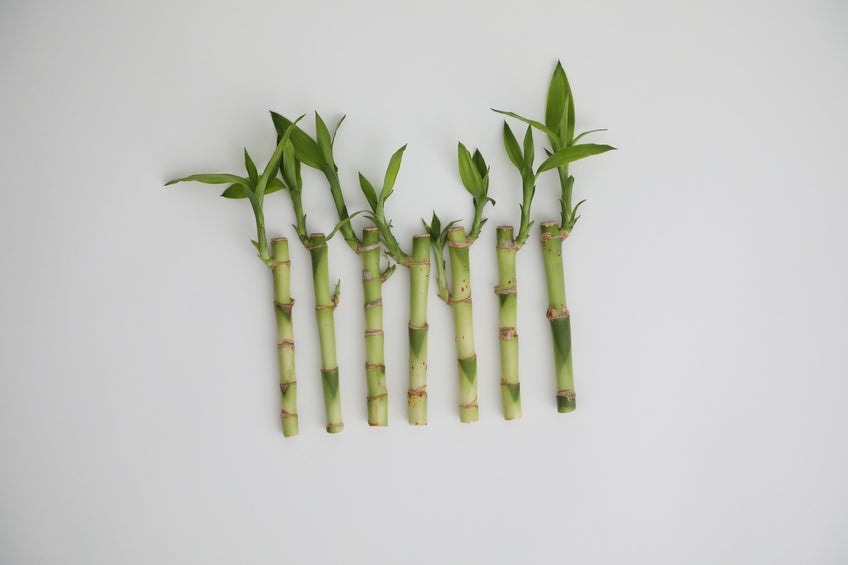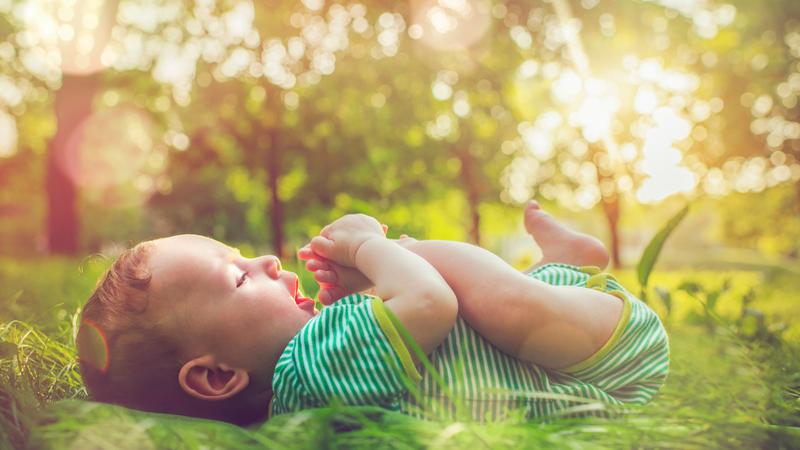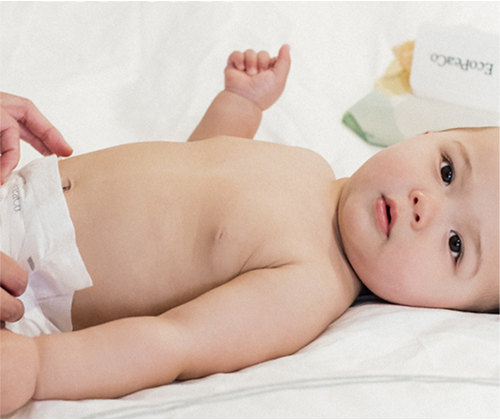When some parents hear the term “bamboo diapers” they envision stiff, uncomfortable material. Or sometimes, they think this type of eco-conscious diaper will be unreasonably overpriced. However, neither assumption has to be true, but they can be. Bamboo diapers are often softer and more absorbent than many traditional varieties of diapers and can be affordable.
So if you’re hoping to switch to a more eco-conscious diaper, but don’t want to sacrifice quality or affordability, consider bamboo diapers. Here are a few of the many reasons why this type of diaper is becoming increasingly popular.
Bamboo is biodegradable.
A prime benefit of bamboo diapers is they are made with biodegradable materials, meaning they’ll break down WAY quicker than their synthetic counterparts. In contrast, most standard diapers take 500 years to break down whereas Eco Pea Co. diapers are more than half degraded in just 2-3 months.
They come from a renewable resource.
Did you know that bamboo can grow up to four-feet in one day, and is always being replenished? That’s right. And, most bamboo species can mature in as little as three to six years. Because of all this, bamboo is one of the most renewable resources on our planet.
In addition, growing bamboo doesn’t require pesticides or herbicides, needs small amounts of water, doesn’t call for irrigation, and doesn’t have to be replanted, as it regenerates from its roots. In addition, it helps Earth’s atmosphere by absorbing carbon dioxide and releasing 35% more oxygen than trees of the same size.
As an added perk, bamboo is a fairly affordable resource to come by, as it’s so easy to grow. This means the price tag on bamboo diapers is often on par with other diapers. Our diapers work out to just over $0.50/diaper.
They’re incredibly soft.
As diapers are on babies pretty much all the time, it’s important to select a brand that uses soft material. Bamboo is a great option in this regard, as the fabric made from it is so soft it’s sometimes referred to as “artificial silk” and many refer to them as "luxuriously soft".
They have enhanced elasticity.
In addition to featuring a soft material, it’s ideal for diapers to be flexible, while maintaining a good seal. Bamboo diapers provide this balance as their stretchiness both enhances babies comfort and minimizes leaks.
They’re lightweight, while still being durable.
Some diapers seem to fall apart as soon as they get wet. But not bamboo. Bamboo fibres are incredibly strong, even stronger than wood fibres, meaning that the diaper will be efficient well after it’s soiled. And because bamboo diapers are so durable, they don’t require as many layers as more traditional diapers, meaning they’re often slimmer and more lightweight, without that "plasticy" feel you sometimes find on other diaper brands.
They’re very absorbent.
Surprisingly, bamboo sheets can absorb up to 70% more liquid than cotton! It can take in three times its weight in liquid. This helps you get more use out of each bamboo diaper, and helps ensure baby stays dry.
They’re naturally hypoallergenic.
Bamboo is naturally hypoallergenic and may help repel mold, mildew, and dust. This all results in bamboo diapers having a very low chance of causing an allergic reaction and allows us to avoid using lotions and synthetic chemicals to do this job.
They minimize the risk of rashes.
Because bamboo diapers are incredibly absorbent and have amazing moisture-wicking properties, they reduce the amount of moisture sitting on baby’s skin. This in turn lowers baby’s chance of developing a diaper rash, as this uncomfortable condition is often caused by prolonged exposure to moisture.
They’re odor resistant.
The combination of bamboo’s absorbency and breathability can lead to less foul odor. This is a major perk, for obvious reasons.
The gist: there really isn’t a good reason not to switch to bamboo diapers. This type of diaper is in-demand by parents in the know because it provides the major perks of eco-consciousness, affordability, and safety and comfort for the baby. Sadly, not all types of diapers can tout these benefits. And when you consider that your baby could use up to 3,000 diapers in a year it makes sense to select a diaper that’s kind to your bank account, the planet, and of course, your baby.


